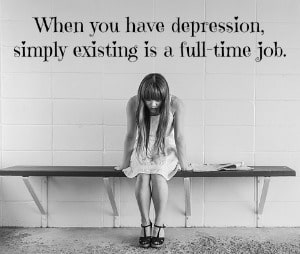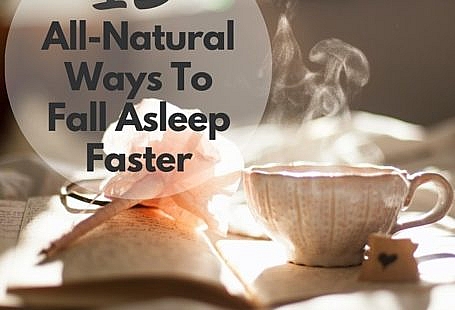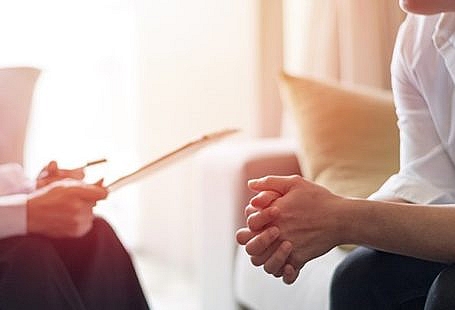If you’re dealing with depression and sleep problems, your bedroom may be a place of anxiety and stress. These six natural ways to cope with insomnia and sleeplessness caused by depression will help you fall asleep and get a better night’s sleep.
In this article, contributing writer Linda Klonsky describes how manic depression and sleep affected her family, and shares her tips for better sleep. In her research on sleep and depression, she found that when a depressed person’s thoughts constantly cycle through his or her shortcomings, physical pains or personal problems, sleep does not come easy. But, there are things you can do to sleep well.
How Depression Affects Your Sleep
by Linda Klonsky
With Robin Williams’ recent passing, there was a lot of attention given to the topic of depression. This illness affects approximately 19 million Americans and is so frequent that mental health experts refer to it as “the common cold of mental illness.” Depression is more common in women than men, but the symptoms are similar.
Symptoms of depression
- Prolonged periods of unshakable sadness
- Restlessness, irritability or excessive crying
- Feelings of hopelessness
- Distorted self-image and often a feeling of “not being good enough”
- Loss of interest in activities that were once enjoyable
- Loss of interest in relationships
- Self-isolation
- Weight loss or overeating and weight gain
- Chronic aches and pains, or physical problems which don’t respond to treatment
- An inability to concentrate, making some tasks downright dangerous
- Decreased energy
One aspect of depression that isn’t given much attention is its devastating effect on sleep. As someone who has experienced depression and whose family has been deeply affected by it, I can attest first-hand to how depression affects sleep patterns. Depression both causes and is made worse by sleep patterns that are disrupted. Depression plays havoc with sleep – and it’s important to find natural sleep remedies that don’t interfere with whatever antidepressants or whatever medication you’re taking for depression.
My mother, a victim of manic depression, could NEVER sleep and was up all night ranting and raving, tormented by “voices.” My brother and I knew that from 9 pm until 3 am, she would be screaming her guts out in our small apartment. Why the neighbors didn’t call the police I still don’t know. Similarly, an elderly relative who is being treated for a different form of depression rarely gets more than two hours of sleep per night, no matter what she does.
Others struggling with depression want to sleep all the time. As someone who has experienced far milder depression, I know how it sucks the life out of everything. When I was depressed, I was completely devoid of energy and felt the need to sleep ALL the time. I was too tired to communicate with loved ones and friends and felt that treatment would be futile. I couldn’t imagine getting better. As for eating right, exercising? That was waaaay too much!
How Depression Affects Your Sleep
During sleep, I was restless, periodically waking up and being unable to return to slumber. My thoughts patterns were obsessive, cycling round with bad memories, feelings of inadequacy, and the burden of personal problems. Nighttime is horrible for people with depression, as the rest of the world is at peace and you are not.

Depression and Sleep
Of course, because I didn’t get any sleep, I felt tired and wiped out the next morning – not refreshed. Life can become exhausting for people with depression. What’s the point of getting out of bed if you feel bad all the time? And even when you do sleep, it’s punctuated by restlessness, periodic waking, and obsessive thoughts. You may have unpleasant dreams and/or nightmares.
Sleep allows your body to repair itself. When I couldn’t sleep because of depression, I was moody, had trouble making decisions, was quick-to-anger, and not someone that I myself wanted to be around. A chronic sleep deficiency raises the risk for major health problems, so I had aches and pains all the time.
Further, anxiety related to sleep results in a vicious cycle of needing sleep, not being able to get enough, nervousness about going to sleep, etc. Again, this makes depression even worse. My bedroom became a place of stress instead of peace. It wasn’t somewhere I looked forward to being at the end of the day.
Some anti-depressants can cause sleep problems. Common side-effects of some of the most popular anti-depressants include:
- Insomnia
- Anxiety
- Restlessness
- Sweating
- Dry mouth (which woke me up the middle of the night, parched)
Since finding the right medication for depression and sleep doesn’t happen overnight, it can take some time before your sleep patterns are corrected.
How to Deal With Sleep Problems Caused by Depression
These tips for sleep and depression are general, and not specific to individuals. If your sleep problems are serious, talk to your doctor as soon as possible. The best way to cope with depression and sleep problems is to get help in person.
Quiet Your Mind and Get to Sleep: Solutions to Insomnia for Those with Depression, Anxiety or Chronic Pain is a workbook that uses cognitive behavior therapy to help people cope with insomnia and sleeplessness. Using techniques used by experienced sleep specialists might be the best way to optimize your sleep pattern, calm your mind, and help you identify what behaviors contribute to your sleep problems.
1. Never stop taking antidepressant and other medications without consulting with your doctor first. Sudden withdrawal from medication can be dangerous! Check with your doctor and let him/her know about your sleep problems. Sometimes they can adjust your dosage or put you on something else.
2. Use your bed only for sleep. If I couldn’t fall asleep, I’d go sit in a chair or on the sofa until I felt myself nodding off. If you wake up in the middle of the night, you might try eating certain foods that help you sleep.
3. Don’t pressure yourself to fall asleep. Looking at the clock was stressful and drove me crazy. By telling myself that any rest was good rest, it took the pressure off and allowed me to sleep.
4. Declutter your room. I thought this was pretty stupid when I first heard about it, but it worked! After forcing (and I do mean forcing) myself to clean my room, my sleep patterns immediately improved! The tidiness of it is pleasing and it’s one less thing to feel guilty about. I feel like I’m in a hotel.
5. Create a bedtime routine that minimizes electronics use. It’s been scientifically proven that the blue light emitted by electronics disrupts sleep. I feel better when I read a book, crochet, or do some other non-tech activity before bed.
6. Don’t forget the benefits of white noise, lavender, a hot shower and a hot cup of tea. I swear by all four! To learn how lavender, chamomile, valerian, and passion flower helps with sleep and depression, read 4 Best Herbal Supplements for Sleep.
Depression or not, whenever I sleep well, everything improves. I’m like a new person the next day! Depression is treatable and sleep disorders related to the condition can be helped, as well. Understand them, address them, and watch life get better.

Linda Klonsky
What do you think of these ways to deal with sleep problems caused by depression? Comments welcome below…
Linda Klonsky is a former Marketing Manager and now the married mother of two kids and a Freelance Writer. Her blog “Is It Hot In Here?” Menopause, Motherhood & More focuses on lifestyle hacks/tips plus product reviews to make life easier. She is also the Content Manager at The Geek Parent and regular contributor to JerseyMomBlog. Her life blood is coffee.
Sources: http://www.allaboutdepression.com and WebMD.





